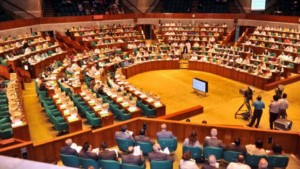by Meadhbh Bolger on 6th May 2020 @MeadhbhBolger
We must build back more resilient, just societies that consume within ecological limits.
The immediate response to the Covid-19 crisis must continue to be saving lives, preventing the further spread of the virus and showing human solidarity and compassion—in particular with the most vulnerable and with essential workers. Meanwhile, the spectre of unprecedented recession looms. And voices from some political parties and industry bodies, such as the car and plastics lobbies, are calling for environmental policies to be scaled back or scrapped. This would be a grave mistake—and would leave us even more vulnerable to future crises.
In March, just before the lockdowns began in earnest in many places, the European Commission launched its new Circular Economy Action Plan. The plan is a package of 35 initiatives which aim to improve how we design products and minimise waste.
Many of these represent genuine progress, yet the plan stopped short of committing to reduce the overall amount of resources consumed within the European Union. As such, it fails to get to the heart of what a circular economy should and must be—ensuring that the quantity of resources that go into our economy is reduced to within ecological limits.
Three planets
The EU currently consumes as if we had almost three planets available to produce the resources we use and absorb the waste we produce, which in turn is driving the climate and biodiversity crises. Many of our resources also come from outside the bloc, and thus our economy relies on highly globalised supply chains.
Growth-led demand for natural resources has been shown to lead to the transmission of deadly viruses to humans. In January David Quammen wrote in the New York Times:
We invade tropical forests and other wild landscapes, which harbour so many species of animals and plants—and within those creatures, so many unknown viruses. We cut the trees; we kill the animals or cage them and send them to markets. We disrupt ecosystems, and we shake viruses loose from their natural hosts. When that happens, they need a new host. Often, we are it.
The EU’s overconsumption contributes to creating exactly these conditions for viruses to make the jump to human populations. Our demand for natural resources, such as through mining for our electronics and petrochemical drilling for plastics, is tearing into forests worldwide. Globally, resource extraction and processing accounts for more than 90 per cent of global biodiversity loss.
Spreading the virus
Our economies have also created the ideal conditions for the virus to spread. They have required the workforce to be highly mobile and to aggregate in densely populated cities—and to depend on ever-growing overconsumption of products from fast-moving, complex, global supply chains, which quickly and efficiently spread the virus.
The new EU plan must tackle our overconsumption head-on, by setting overarching resource-reduction targets with sectoral plans. The ambition must increase from simply monitoring resource-footprint indicators—what is now in the plan—to setting targets to reduce these footprints and ensuring their achievement. Targets would set a clear intention and drive action.
In particular, we need to halve the EU’s material footprint by 2030. The material footprint measures the total weight of raw materials—biomass, fossil fuels and metal and non-metal ores—needed to produce the goods and services consumed in the EU as a whole, including imports. Reduction of materials consumed brings us back within ecological limits and means less destruction of natural ecosystems.
Political choice
There is nothing inevitable about how we adapt our economies to cope with the pandemic or how we build back from it. How we repair them is a political choice—and trying to recreate a growth-driven economy which relies on a ‘flexible’ labour market and increasing consumption is simply not workable.
What the lockdowns and social-distancing measures have taught us is that urgent and strong political action can be taken when the will is there. What we need now is for the EU and member-state governments to treat the recovery programme with the same sobriety and urgency as evinced in the pandemic so far.
We need a European Green Deal that puts to the forefront of the restoration of ecosystems and biodiversity. And we need a Circular Economy Action Plan that imposes ecological limits to resource use and creates more resilient, localised models of production—in doing so helping to reduce the likelihood and severity of future crises.
(Meadhbh Bolger is a resource justice campaigner with Friends of the Earth Europe, based in Brussels. She has been working for five years on EU policies on circular economy and resources. Previously, she worked as an environmental engineer in Australia and the UK.)
- Social Europe




